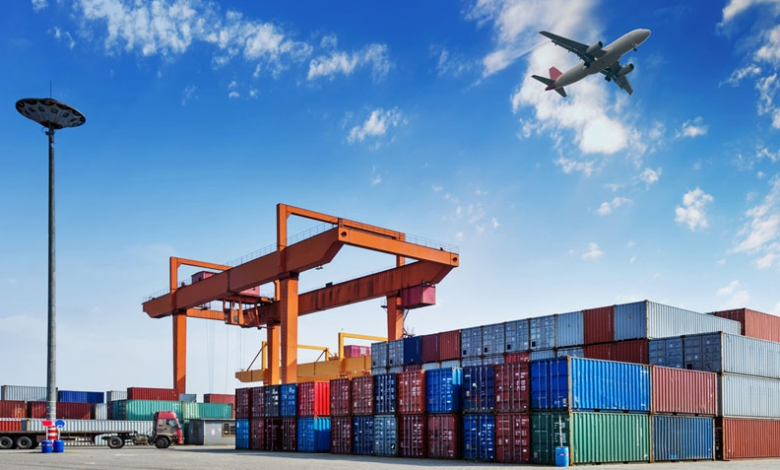Logistics Hong Kong

Introduction To Logistics In Hong Kong
Hong Kong has long been recognized as a global trading hub, thanks to its strategic location, free trade policies, efficient customs processes, and world-class infrastructure. The term logistics hong kong is becoming increasingly relevant as the region continues to play a pivotal role in global supply chain management. The logistics industry is not only vital to the local economy but also serves as a bridge connecting mainland China with the rest of the world.
Strategic Location And Trade Connectivity
Located at the heart of Asia, Hong Kong enjoys unparalleled access to regional markets. It is within a five-hour flight radius of half of the world’s population. This makes logistics hong kong an ideal solution for companies aiming to distribute products across Asia swiftly and cost-effectively. The city is well connected by air, sea, and land, offering seamless integration between different transportation modes.
Hong Kong International Airport is one of the world’s busiest in terms of cargo traffic. In parallel, the Port of logistics hong kong ranks among the top container ports globally, facilitating efficient sea freight operations. These infrastructures make the city a crucial point in many multinational corporations’ logistics networks.
Role Of LSCM In Hong Kong
The Logistics and Supply Chain MultiTech R&D Centre (LSCM) plays a vital role in enhancing the logistics hong kong ecosystem. Established by the Hong Kong government, LSCM supports research and development in logistics technology. This includes projects in robotics, automation, the Internet of Things (IoT), and blockchain technology, all aimed at improving efficiency and accuracy in supply chain operations.
By funding innovations and collaborating with academic institutions and private sector partners, LSCM helps businesses in Hong Kong stay competitive in a rapidly evolving global logistics landscape.
Technological Integration And Smart Logistics
One of the biggest trends in logistics hong kong is the adoption of smart logistics. Technologies like AI, IoT, and big data analytics are transforming the way goods are stored, moved, and tracked. Companies are increasingly using real-time tracking systems, automated warehouses, and predictive analytics to reduce delays and enhance customer satisfaction.
Blockchain technology is also making waves by providing secure and transparent data sharing across supply chain partners. This is especially crucial in sectors like pharmaceuticals and food, where traceability is essential.
Green Logistics And Sustainability Initiatives
Environmental sustainability is a growing concern in global logistics, and logistics hong kong is no exception. The region is witnessing a shift towards green logistics, with initiatives aimed at reducing carbon emissions, optimizing fuel usage, and adopting renewable energy.
Companies in Hong Kong are increasingly using electric delivery vehicles, energy-efficient warehouses, and carbon offsetting programs. The government is also encouraging these practices through tax incentives and infrastructure development.
E-Commerce Boom And Warehousing Demand
With the rapid growth of e-commerce, the demand for logistics services in Hong Kong has surged. As more consumers shop online, businesses require faster delivery times and more efficient warehousing solutions. This has led to increased investments in smart warehousing and last-mile delivery systems within the logistics hong kong sector.
Fulfillment centers are being optimized using automation and AI, allowing for quicker order processing and delivery. This not only benefits businesses but also enhances the overall customer experience.
Cross-Border Logistics With Mainland China
Hong Kong serves as a key logistics gateway to mainland China. Through well-established road, rail, and sea connections, goods can move swiftly between the two regions. Initiatives like the Guangdong-Hong Kong-Macao Greater Bay Area development aim to strengthen this integration further, offering immense opportunities for cross-border logistics.
In the logistics hong kong context, cross-border operations are supported by streamlined customs procedures, bonded warehousing, and integrated logistics parks. These facilities enable businesses to benefit from cost-effective and time-efficient distribution channels.
See also: Choosing the Perfect Live Auction Software: A Complete Guide for Business Success
Talent Development And Industry Support
To maintain its edge, the logistics industry in Hong Kong needs a well-trained workforce. Educational institutions in Hong Kong offer specialized programs in logistics, supply chain management, and transportation. These are designed to meet the evolving needs of the industry.
Moreover, organizations such as LSCM and the Hong Kong Trade Development Council (HKTDC) offer support in the form of training programs, funding schemes, and industry events. These efforts aim to foster innovation and collaboration among stakeholders in the logistics hong kong field.
Challenges Facing The Logistics Sector
Despite its strengths, the logistics industry in Hong Kong faces several challenges. High operating costs, limited land for warehousing, and competition from other regional hubs like Singapore and Shenzhen are major concerns. Additionally, disruptions caused by global pandemics and geopolitical tensions have highlighted the need for more resilient and adaptive logistics networks.
The logistics hong kong industry must continually innovate and diversify to stay ahead. Strategies such as digital transformation, process automation, and regional partnerships are essential for overcoming these hurdles.
Future Outlook Of Logistics In Hong Kong
The future of logistics hong kong looks promising, especially with the continued support from the government and investments in smart infrastructure. The integration with the Greater Bay Area is expected to open new markets and opportunities. Additionally, advancements in green technology and automation will redefine logistics efficiency.
Hong Kong is likely to maintain its position as a regional logistics hub by focusing on innovation, sustainability, and talent development. These factors will play a key role in shaping the next generation of logistics services in the region.
Conclusion
As global supply chains become more complex and consumer expectations rise, logistics hong kong will play an increasingly critical role in ensuring seamless and efficient operations. With its strategic location, advanced infrastructure, and commitment to innovation, Hong Kong continues to be a logistics powerhouse in Asia. Industry players, supported by LSCM and other stakeholders, must continue to adapt and evolve to meet the demands of a rapidly changing world.




